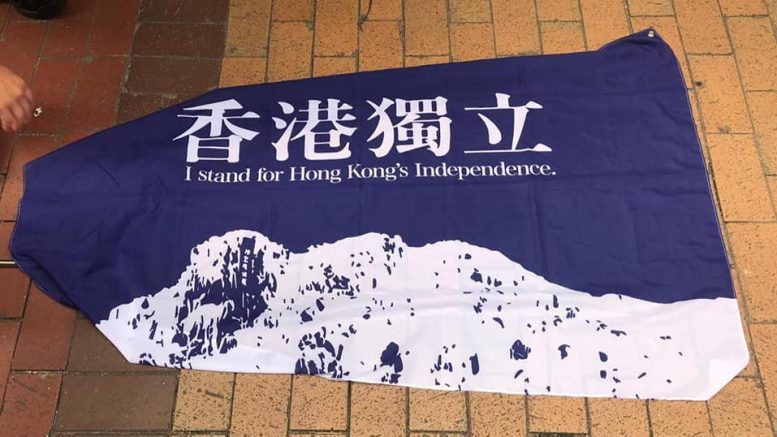By Chris Yeung
Hong Kong people woke up on the morning of July 1 to find the city is no longer the same as it was with an air of unease and uncertainty prevailing following the enactment of the National Security Law.
Welcome to the beginning of a new era with more unexpected – and unwanted – changes and inconceivable developments in the city unfolding.
Even before the full text of the new law, whose legislative process was completed by China’s rubber stamp legislature in less than two months, was published, chilly winds swept across the pro-democracy camp.
On June 30, the city’s most prominent young student leaders including Joshua Wong Chi-fung, Nathan Law Kwun-chung and Agnes Chow Ting had severed ties with the Demosito, a student group they co-founded. Demosito said on the same day they would cease functioning.
On Friday, Nathan Law became the first democracy leader to flee the city after the national law took effect. He said in an interview with Reuters the new law marked the end of “one country, two systems.”
Ten people were arrested by the Police during the July 1 protest for an alleged breach of the new law. Evidence publicised by the Police in support of the arrests included banners and posters that carried the slogan, “Liberate Hong Kong, Revolution of Our Times.”
The eight-word slogan is the theme slogan of the year-long social movement that was ignited by protests against the now-shelved extradition bill erupted in June last year.
In a statement issued on July 2, the Government said the protest slogan is in violation of the new National Security Law, because it carries secessionist or subversive intent.
On July 3, the key mainland and Hong Kong officials in charge of national security issues were unveiled. Director of the central government’s Liaison Office in Hong Kong, Luo Huining will be Beijing’s adviser on the national security committee. Guangdong official Zheng Yanxiong, who handled the Wukan protests of 2011, has been appointed director of Hong Kong’s powerful new national security agency.
At the end of the first meeting of the national security panel attended by Luo on Monday, the Government gazetted with immediate effect details of law enforcement, giving more powers to the Police to carry out interception of communication and home search, among others.
Other government departments also wasted no time in their law enforcement.
On Saturday, Hong Kong public libraries suspended the lending of several titles written by political figures including Joshua Wong, localist Wong Chin and Civic Party legislator Tanya Chan.
Library officials said the books were “under review” following the enactment of the National Security Law.
The suspended titles of Chin’s include works on Hong Kong as a “City-State” and Hong Kongers as “survivors”. Some other books by Chin were still available for borrowing.
In anticipation of a ban on more titles, people could not wait to snap up books that are deemed as politically sensitive.
Changes are more obvious in social media. Despite doubts about whether the Government’s statement on the protest slogan could pass the test of law in court, the warning has blown chilling air across the social media landscape. But as soon as the theme slogan disappeared from social media posts, a long list of look-alike slogans with a touch of satire and humor plus an abundance of imagination has hit the internet.
Faced with a harsher-than-expected law and merciless enforcement, Hong Kong people once again reacted with persistence and resilience and learned from the wisdom of “Be Water” to fight for freedom in an increasingly precarious environment.
More people replaced WhatsApp with safer communication platforms on their mobile phones, knowing that any assurances by the authorities about free speech must not be taken for granted.
With trust in the government plunged to a nadir, people are looking for a safer place to express their views freely with the risk of a violation of the new law being managed at a low level.
In a similar vein, pro-democracy figures such as Nathan Law have and will have to make tough decisions on their role and strategy in their fight for freedom and democracy. It is difficult to tell how far Law can go on the international front, which is now a dangerous zone under the new law.
But the fleeing of Law, one of the student leaders who rose to political stardom during the 2014 Umbrella Movement, signifies the city’s democratic movement will enter uncharted and turbulent waters. Democracy leaders will have to keep safe before looking for direction and strategy to fight for democracy.
Chris Yeung, Chief Writer of CitizenNews, an online news platform, is a veteran journalist formerly worked with the South China Morning Post and the Hong Kong Economic Journal. He writes on Greater China issues.
This article was first published in Apple Daily on July 8, 2020.



Be the first to comment on "A week too long for Hong Kong"